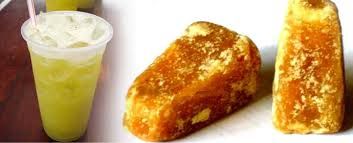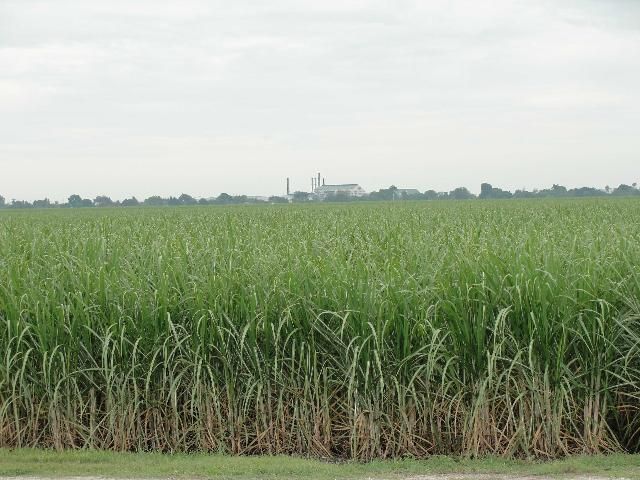Lasting Sugarcane Products: From Sweeteners to Eco-Friendly Product
The potential of sustainable sugarcane items extends past traditional sugar to incorporate an array of environmentally friendly goods, providing an engaging situation for their assimilation into modern-day customer methods. As the globe grapples with pushing ecological concerns, sugarcane emerges as a versatile source capable of dealing with both nutritional needs and sustainability objectives.
Introduction of Sugarcane Sustainability
As the need for eco-friendly items grows, recognizing sugarcane sustainability becomes increasingly vital. Sugarcane, a versatile plant, is cultivated mostly in subtropical and exotic areas, and its sustainability is important for both environmental health and wellness and economic viability. Sustainable sugarcane farming methods focus on decreasing eco-friendly influence while maximizing efficiency and profitability.
Key facets of sugarcane sustainability consist of reliable land use, lowered chemical input, and boosted water management. Practices such as plant rotation, integrated parasite management, and organic fertilizing add to dirt wellness and biodiversity. Additionally, cutting-edge modern technologies, such as accuracy farming, help optimize resource use and reduce waste.
In addition, sugarcane is a renewable source, with by-products that can be utilized in various markets, from biofuels to naturally degradable plastics, thus minimizing dependence on nonrenewable fuel sources and decreasing carbon impacts. Qualifications like the Bonsucro common motivate sustainable methods throughout the supply chain, promoting transparency and responsibility.

Sugarcane-Based Sweeteners
Utilizing sugarcane as a key resource, sugarcane-based sweeteners have actually gotten prominence as all-natural alternatives to refined sugars and sweetening agents (sugarcane product). These sugar, acquired from the extraction and processing of sugarcane juice, provide a variety of products that cater to varied consumer choices, including natural and minimally refined options
Among the most noteworthy sugarcane-based sweeteners are raw cane sugar, panela, and molasses. Raw walking stick sugar retains more of the all-natural flavors and nutrients located in sugarcane, making it a popular selection for health-conscious consumers. Panela, a typical Latin American sugar, is produced by vaporizing sugarcane juice, preserving its natural minerals and vitamins. Molasses, a by-product of sugar extraction, is rich in antioxidants and important nutrients, functioning as a healthy sweetening representative in different culinary applications.
The growing need for sugarcane-based sweeteners is driven by enhancing recognition of wellness and sustainability problems associated with standard sweeteners. By selecting sugarcane-derived items, customers not only sustain lasting agricultural practices yet also add to a healthier way of living, aligning their nutritional choices with their ecological values.
Naturally Degradable Product Packaging Solutions
Becoming a feasible choice to standard plastics, eco-friendly packaging solutions originated from sugarcane are changing the product packaging market. These innovative products give an eco-friendly option that addresses the growing worries over plastic pollution. Making use of the all-natural sugars located in sugarcane, makers are creating numerous forms of eco-friendly product packaging, including films, containers, and covers that disintegrate much more swiftly than standard plastics.
The key advantages of sugarcane-based product packaging hinge on its eco-friendly sourcing and its capacity to damage down into non-toxic byproducts. Unlike fossil fuel-derived plastics, which can continue the setting for hundreds of years, sugarcane product packaging normally disintegrates within a few months under correct conditions. This decrease in waste not just minimizes land fill overflow however likewise reduces the carbon impact linked with product packaging materials.
Furthermore, sugarcane-derived product packaging maintains durable efficiency characteristics, supplying comparable resilience and functionality to standard choices. As services and customers progressively prioritize sustainability, the fostering of biodegradable product packaging options stands for a considerable action in the direction of a circular economic climate, where materials are recycled and restored instead of discarded. This change not just enhances brand image however additionally adds to a much more lasting future for the planet.
Eco-Friendly Textiles and Fabrics
Environment-friendly fabrics and materials are acquiring traction in the style and home items sectors as customers significantly demand sustainable alternatives to typical products. Among the noteworthy choices are a knockout post materials derived from sugarcane, which supply an environmentally responsible option to synthetic fibers. These textiles are generated through a procedure that makes use of the sustainable sources located in sugarcane, substantially lowering reliance on petroleum-based materials.

As the market for lasting fabrics broadens, customers can look onward to cutting-edge layouts that combine design with eco-friendly obligation. Eventually, environmentally friendly textiles and fabrics represent a considerable action toward decreasing the style sector's ecological footprint while providing to the growing need for liable customer options.
Innovations in Sustainable Farming
Reinventing farming methods, advancements in sustainable farming are changing the method crops are expanded and handled. These innovations concentrate on minimizing ecological impact while optimizing effectiveness and productivity.

Furthermore, agroecology, which Go Here incorporates eco-friendly principles into farming, advertises biodiversity and soil health. Practices such as crop turning, cover cropping, and intercropping foster resilient ecosystems that can stand up to pests and climate variations - sugarcane product. Furthermore, the use of organic fertilizers and biopesticides adds to healthier dirts and ecosystems

With each other, these technologies are not only improving the farming landscape however likewise adding to a much more sustainable future for sugarcane and various other crops, lining up agricultural exercise with environmental stewardship.
Conclusion
Lasting sugarcane products represent a substantial improvement in environmentally friendly options, covering from natural sugar to eco-friendly goods. The cultivation of sugarcane with lasting practices not only improves ecological wellness however likewise adds to financial practicality. As customer choices increasingly lean towards sustainable choices, the adaptability of sugarcane as an eco-friendly source ends up being increasingly relevant. This trajectory highlights the value of continued innovation and commitment to lasting methods within the sugarcane industry, cultivating a more lasting future.
The potential of lasting sugarcane products extends past traditional sugar to encompass a range of navigate to these guys environmentally friendly products, offering a compelling case for their combination right into modern customer methods. Lasting sugarcane farming techniques concentrate on lessening ecological impact while making the most of performance and profitability.
Sustainable sugarcane products stand for a considerable innovation in environmentally friendly choices, spanning from all-natural sugar to naturally degradable items. The cultivation of sugarcane via lasting practices not just enhances environmental wellness but likewise adds to economic feasibility. As customer choices significantly lean in the direction of sustainable options, the adaptability of sugarcane as a renewable resource becomes progressively pertinent.